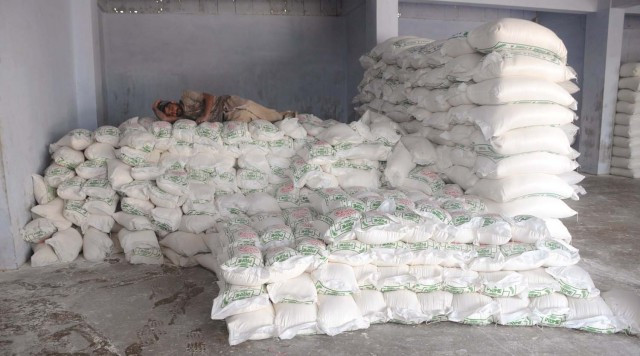Millers are canceling existing flour and wheat orders placed by local distributors, tandoor owners and grocery traders.
A serious flour crisis has gripped Rawalpindi and Islamabad following the Punjab Food Department’s ban on supply of wheat to flour mills in the twin cities. The Flour Mills Association, following the suspension of wheat supplies, has announced that it will suspend flour supplies to both cities from Monday.
All existing orders of flour, fine flour (maida) and wheat placed by local traders, tandoor owners and grocery stores have been cancelled, leading to an emerging shortage in the markets since Friday night. A meeting of the Rawalpindi Flour Mills Association was held to discuss the issue, chaired by the patron-in-chief Sheikh Tariq Sadiq.
Participants expressed concern over the Punjab government’s decision to stop issuing wheat supply permits to factories based in Rawalpindi and Islamabad. They pointed out that the twin cities are non-wheat producing regions and are entirely dependent on supply from the wheat producing districts of Punjab.
The association warned that if the issuance of wheat permits does not resume immediately, flour supplies will remain suspended, which could worsen the shortage in Rawalpindi and Islamabad. Officials urged the Punjab Food Department to reconsider its decision, warning that the continued disruption of wheat supplies could turn into a full-blown food crisis in the capital region.
Last month, the Naanbai Association of Pakistan had expressed concern over the doubling of prices of flour, fine flour and refined wheat over the past 18 months, as well as the persistent sealing of tandoors, the imposition of fines ranging between Rs 50,000 and Rs 100,000 and the closure of bakeries for up to five days.
Naanbai Association central president Shafiq Qureshi said that at the time of formation of Prime Minister Shehbaz Sharif’s government and Chief Minister Maryam Nawaz’s administration in Punjab, a 79-kilogram bag of red flour cost Rs 5,500, while now the price has risen to Rs 11,000. Similarly, a bag of fine flour, which earlier cost Rs 6,200, now sells for Rs 12,600.
“This system of expensive flour and cheap bread can no longer be sustained,” he said. “The Prime Minister once promised to sell his own clothes for affordable flour, but now it is tandoor operators and bakers who are being left naked. Since the establishment of the new Price Control Force, we have been subjected to relentless oppression.”
According to Qureshi, since October 1, as many as 38 tandoors have been demolished without justification, 79 have been sealed for five days and more than 100 owners have been slapped with fines ranging between Rs 25,000 and Rs 50,000. “We will not remain silent anymore,” he said.
He added that the government and district administration have failed to regulate flour prices, and their frustration and administrative failure are being taken out on tandoor owners and bakers through arbitrary demolitions, fines and closures. The association has submitted a formal request to the deputy commissioner, seeking an immediate meeting of the Price Control Committee to adjust the roti prices in line with the prevailing flour rates.




